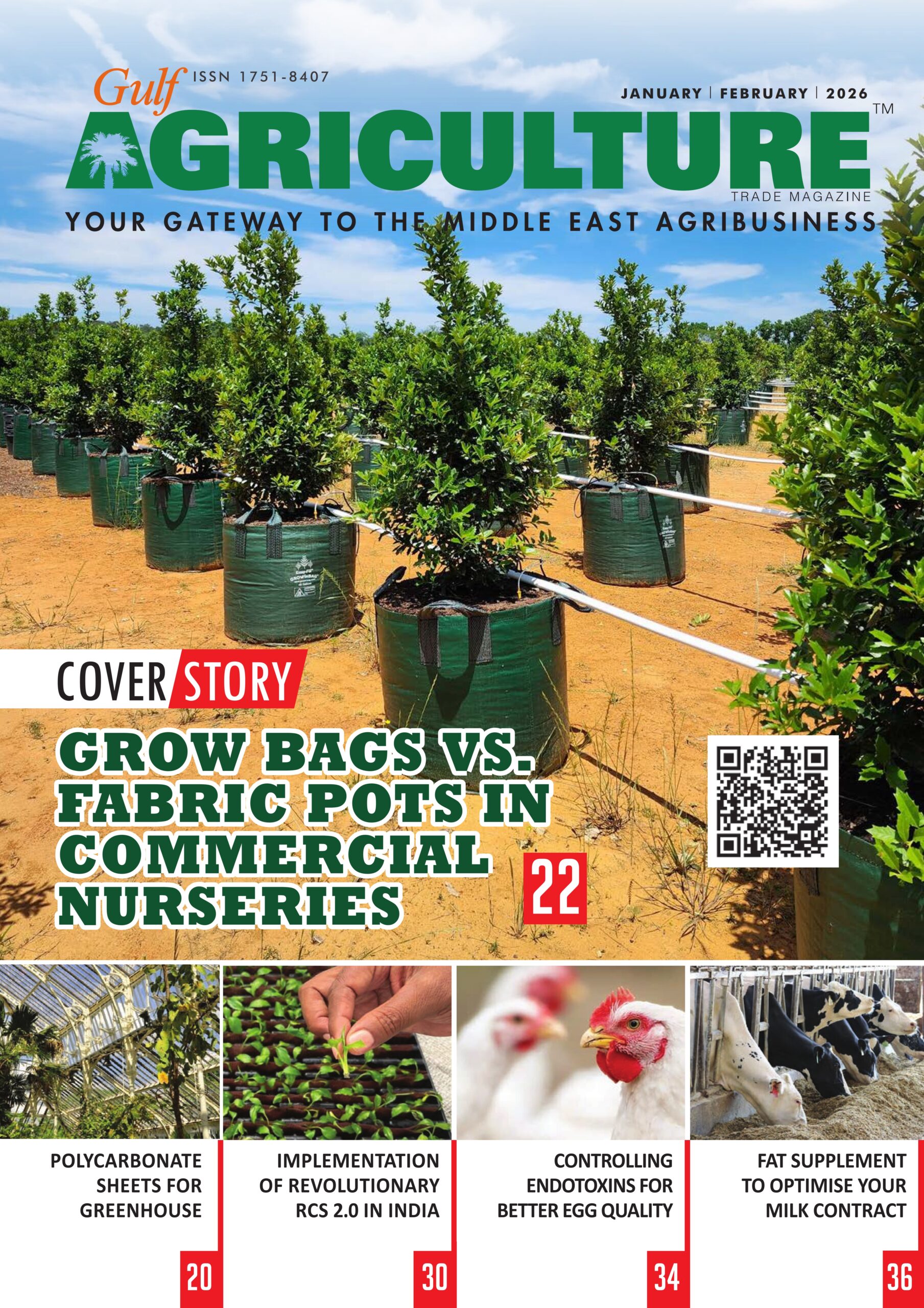Ag-tech start-up WeedOUT, Ltd., announces it has secured USD8.1 million in A-round funding. Leading the round is Fulcrum Global Capital, a prominent US agri- focused VC with ties to a vast network of farmers across the US. The infusion of new capital will advance the company’s mission to combat weed resistance through its breakthrough green solution.
Other participants in the equity round include Bunge Ventures, the investment arm of the leading agriculture and food company Bunge (NYSE: BG), and the Singapore Headquartered agrifood tech fund Clay Capital (formerly VisVires New Protein, VVNP). The new funding is in addition to several grants received by the company from the Israeli Innovation Authority.
WeedOUT’s solution could solve one of the greatest threats to agriculture and food security: herbicide-resistant weeds. The company created a novel and environmentally conscious approach to significantly curbing proliferation of weeds that no longer respond to commonly used chemical herbicides.
“Resistant weeds that plague crops are a major challenge for farmers globally—and the situation has only worsened,” asserts Kevin Lockett, partner at Fulcrum Global Capital. “Fulcrum Global is excited to support WeedOUT’s cutting-edge biological platform and the unique approach it has pioneered to address the resistant weed problem. The company’s integrated management approach aligns seamlessly with existing farm practices and could enable growers worldwide to produce more food on the same amount of land and in a much more sustainable way.”
WeedOUT’s first target
“Weeds are highly competitive, aggressive plants,” explains Efrat Lidor Nili, PhD, co-founder and co-CEO of WeedOUT. “They compete with crops for all essential resources, including soil, water, nutrients—and even sunlight. Weeds substantially reduce crop yield.”
The company’s first target is the Palmer amaranth weed (Amaranthus palmeri), a major nuisance in the United States, Brazil, and Argentina. The weed can grow up to several meters high and invade fields of corn, cotton, soybeans, and sugar beets. It can crash corn crop yield by 90% and soybean yield by 80%. “Our green solution specifically targets this type of resistant weed,” notes Lidor Nili.
The prolonged use of chemical herbicides, such as glyphosate, has enabled the destructive weeds to develop multiple resistance. Nicknamed “super weeds,” the traditional method for countering them has been chemical herbicides.
“Evolution is always smarter,” adds Lidor Nili. “The weeds learn ways to evade the effects of the herbicides. But WeedOUT is applying an entirely new, green approach that targets the reproductive system of resistant weeds and will provide a sustainable, long-term solution.”
Novel approach
WeedOUT’s novel method takes inspiration from sterility techniques used successfully since the 1940s for controlling populations of unwanted insects, such as mosquitoes and flies. It centers on a proprietary weed pollen derived from the male plants. This sterile pollen fertilizes the female weed ovules, yielding nonviable seeds and effectively impeding the growth of a new generation of resistant weeds.
Since the introduction of the sterility technique 80 years ago, the realm of insect control has not encountered any resistance issues, and it is considered one of the safest methods ever developed. WeedOUT is the first to apply this time-tested method to weed control.
WeedOUT’s founders conducted the initial experiments in their own home balconies with instant success. Armed with compelling proof of concept and crucial seed funds, they proceeded to local field trials before scaling up efforts in more extensive trials across the U.S. covering cotton, soybean, and sugar beet fields. These trials are being conducted in conjunction with key opinion leaders in weed control.
Funds raised in this investment round are being channeled to further expand field trials in multiple regions in the U.S., including Georgia and Nebraska, as WeedOUT moves to launch its inaugural product targeting the Palmer amaranth weed. The company recently submitted a request to the Environmental Protection Agency for marketing approval and is developing new formulations targeting different weed species.
A new fruitful era
“WeedOUT effectively targets the innately complex reproductive system of the plant, not just one enzymatic pathway,” describes Orly Noivirt-Brik, PhD, co-founder and co-CEO of WeedOUT. “This approach makes it almost impossible for the weeds to develop resistance. As the weeds are treated with pollen, our method is designed to work in harmony with the ecosystem and to avoid threats to the food crop”.
The WeedOUT solution marks a new era for farmers. “By enabling them to integrate our biological approach with traditional methods, we are redefining weed management strategies,” emphasizes Noivirt-Brik. “Our products will dramatically enhance crop yields while simultaneously minimizing dependency on chemical herbicides. We envision our technology being widely adopted for multiple crops and serving as a key solution in the battle against resistant weeds. WeedOUT will make a vital and meaningful contribution to agricultural practices and food security, worldwide.”
Fulcrum Global Capital (FGC) is an early-stage venture capital fund investing in companies and entrepreneurs disrupting the global food production industry through the agriculture, animal health, and agtech markets. FGC is especially interested in companies with technologies and approaches that increase yields, reduce food waste, and/or make food safer. Based out of the Kansas City area, FGC invests both within the U.S. and across the globe. More information on FGC can be found at https://www.fgcvc.com
Bunge (NYSE:BG) – Bunge’s purpose is to connect farmers to consumers to deliver essential food, feed and fuel to the world. It is a world leader in oilseed processing and a leading producer and supplier of specialty plant-based oils and fats. The Company has its registered office in Geneva, Switzerland and its corporate headquarters in St. Louis, Missouri and has approximately 23,000 dedicated employees working across approximately 300 facilities located in more than 40 countries.
Clay Capital – Since 2014, Clay Capital has played a pivotal role in nurturing and fostering some of the most iconic start-ups that are transforming the world of food and agriculture today. Pioneers in deploying venture capital into high impact agrifood tech, the firm is backed by institutional investors, including government and supra-national entities, banks, insurance companies, and prominent families in the agrifood industry.























